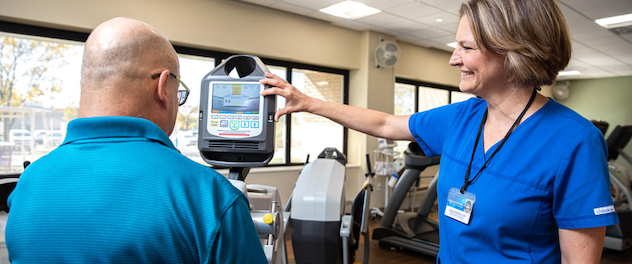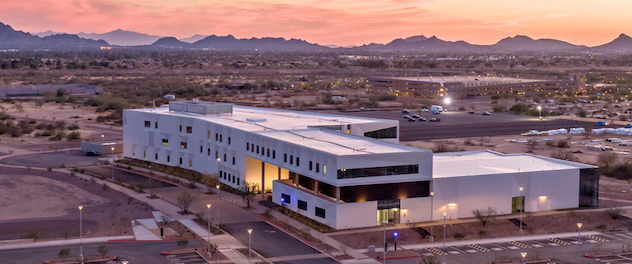-

Examining physical activity behaviors and health outcomes in cancer survivors
Dr. Ehlers and her colleagues study the effects of physical activity on the cognitive, psychosocial and physical functions of patients.
-

Health Futures Center
Located near the Phoenix campus of Mayo Clinic, the Health Futures Center is home to the Exercise Neuropsychology Laboratory.
-

Capacity to do multiple types of assessments
The laboratory includes space to perform cognitive testing, physical function assessments and exercise testing. Dr. Ehlers and her team use MRI to conduct brain imaging at Mayo Clinic's campus in Scottsdale, Arizona.
Overview
Mayo Clinic's Exercise Neuropsychology Lab, led by Diane K. Ehlers, Ph.D., focuses on physical activity and quality of life in older adults and people living with cancer.
The lab's current work evaluates the effects of aerobic exercise on neurocognitive function in women with a history of breast cancer. Cognitive changes are increasingly recognized as a consequence of a cancer diagnosis and cancer treatments. For some survivors, these changes can be devastating and long-lasting. Unfortunately, there are no evidence-based treatments for cancer-related cognitive decline.
The Exercise Neuropsychology Lab focuses on lifestyle behaviors, namely physical activity and exercise, as potential treatments for cognitive decline related to cancer. The goal of this work is to provide patients and healthcare professionals with evidence-based recommendations to maintain cognition during and after cancer treatment.
Facilities
The Exercise Neuropsychology Lab is located in the Health Futures Center just east of Mayo Clinic's campus in Phoenix. The Health Futures Center, a collaboration between Mayo Clinic and Arizona State University, shares a goal of improving community health and well-being.
The Exercise Neuropsychology Lab includes space to conduct cognitive testing, physical function assessments and exercise testing. The lab maintains equipment and supplies for this research, including:
- Research-grade accelerometers.
- Consumer-grade wearable sensors.
- Polar heart rate monitors.
- Treadmill.
- Vyaire metabolic system.
- Blood pressure monitors.
- iPads.
Additionally, the lab uses MRI equipment at Mayo Clinic's campus in Scottsdale, Arizona, to conduct brain imaging for studies.